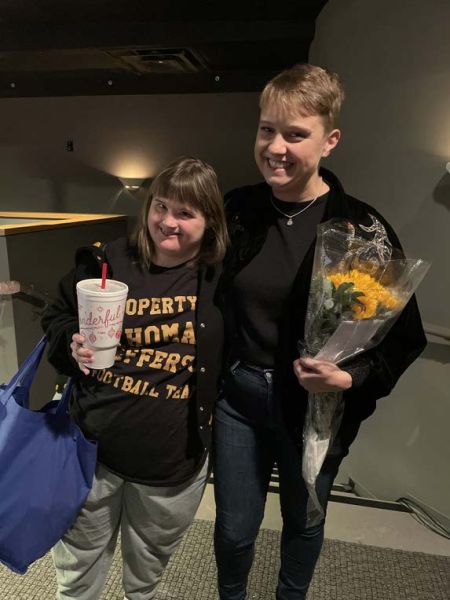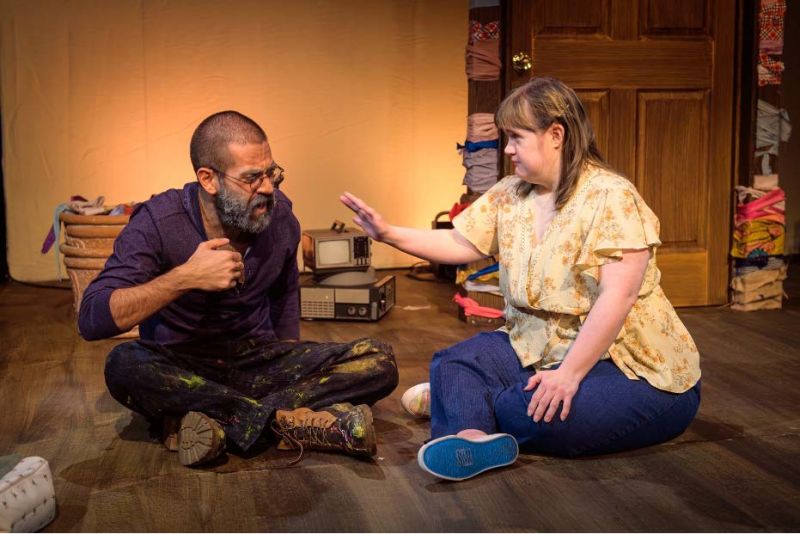Collective Agency in Disability Performance: A Conversation with Alison Mahoney
By Abdelrahmen ElGendy
---

Alison M. Mahoney's PhD research at the University of Pittsburgh lays at the intersection of disability, performance, and collective agency. Her work is centered around neurodiversity and creating inclusive theatrical experiences for children and adults with various disabilities. "My work in theater and arts administration was deeply intertwined with neurodiversity and disability." Mahoney explains, "This inspired me to delve deeper into understanding the complexities of accessibility within performance settings,"
Her dissertation, titled "Agential Collectives: Decentering Voice in Disability Performance Ensembles," emerges from both her professional backdrop and a profound engagement with the dynamics of performance collectives. Mahoney elaborates on her motivation: "I've observed the ways in which diverse disabilities navigate collaborative spaces. There's a significant focus on how these collaborations foster a caring and accessible environment, which intrigued me to explore the collective agency further."
Mahoney's research is partly a response to critiques suggesting that political claims made on behalf of neurodiverse individuals could be ethically problematic. "The assertion that individuals with certain disabilities might not make political claims themselves sparked a significant concern in me," she states.
A substantial portion of her research is dedicated to understanding how collectives can articulate a shared sense of agency, particularly for individuals whose relationships with language and self-expression might be non-traditional. This concern underscores her investigation into how collective endeavors in performance can embody and articulate agency beyond conventional, individualistic expressions. It challenges the assumption that language equates to agency, and thus, defines what constitutes a human. Mahoney is exploring communities with "contested relationships to language," such as Drag Syndrome—a collective of drag performers with Down syndrome. "Some members are incredibly articulate about their involvement in drag and queer nightlife, while others may not use verbal communication as extensively," she notes, highlighting the diversity within these groups.
Through directing inclusive theater productions, Mahoney confronts institutional barriers to accessibility, advocating for a deeper understanding of diverse needs within theatrical spaces. Her experience directing Corsicana with a cast including Megan Michaels, an actress with Down syndrome, highlighted to her the importance of relationship-building in creating truly inclusive environments.
Mahoney is exploring communities with "contested relationships to language," such as Drag Syndrome—a collective of drag performers with Down syndrome. "Some members are incredibly articulate about their involvement in drag and queer nightlife, while others may not use verbal communication as extensively," she notes, highlighting the diversity within these groups.

Her methodologies intertwine archival research with ethnographic work, aiming to shed light on the nuances of collective performances and their societal implications. During her ESC-funded summer research trip in the UK, Mahoney plans to immerse herself in these environments, from observing rehearsals to conducting in-depth interviews. "I'm eager to witness their performances across various settings, aiming to grasp the collective dynamics within these groups," she shares. Mahoney also intends to visit the National Disability Arts Collection and Archive (NDACA) in London to place groups like Drag Syndrome within a broader historical context of disability arts. This exploration seeks to understand shifts in public investment and perception regarding disability arts, potentially uncovering new insights into the evolution of funding and public engagement with such artistic practices.
Looking ahead, Mahoney aims for her work to challenge and expand the current academic discourse around disability, particularly in terms of neurodiversity and intellectual disability. "The field of disability studies has, at times, focused predominantly on physical or sensory impairments. My aim is to encourage a broader inclusion of intellectual disability and neurodiversity, exploring the rich political and artistic claims these communities make," she says.
She also hopes her research will encourage a more nuanced understanding of disability and performance and inspire a shift towards viewing accessibility and diversity through the lens of collective relationships. "It's about establishing spaces of mutual care,” ends Mahoney, “not just ticking off accessibility requirements.”

